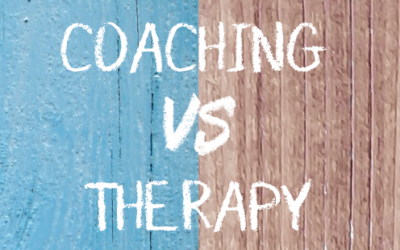Is it All About You? Traits of Narcissism
In our modern world, self-promotion and individualism are often prioritized, sometimes overshadowing the deep need for genuine human connection. This can lead individuals to develop coping mechanisms that help them navigate feelings of vulnerability and fear of rejection. Narcissism is one such mechanism, rooted in self-preservation and self-interest. Though often misunderstood, a deeper exploration of its origins, manifestations, and healing pathways—through both psychological and spiritual lenses—can offer profound insights for personal growth and transformation.
What Are Narcissistic Traits?
Narcissism often stems from a defense mechanism developed to cope with feelings of insecurity or vulnerability. When someone fears being disliked, devalued, or hurt, they may focus inward, prioritizing their own needs and desires. This can create an inflated sense of superiority and lead to behaviors that strain relationships, often without full awareness of the impact on others.
At the heart of narcissism lies a struggle between two extremes: grandiosity, where one feels superior and invincible, and shame, where one feels deeply flawed or unworthy. This internal conflict plays a crucial role in narcissistic behavior, and understanding it is key to addressing and healing from narcissism.
Recognizing Traits of Narcissism
Narcissism can be subtle and is not always easy to identify. There is also a form of “healthy narcissism,” where an individual takes pride in their achievements and maintains a positive self-image, which is vital for psychological well-being. However, excessive narcissism can manifest in ways that harm both the individual and their relationships. Key signs include:
- Conversational Dominance: Steering conversations toward oneself to seek validation and attention.
- Comparative Behavior: Frequently comparing oneself to others to feel secure in one’s perceived superiority.
- Avoidance of Responsibility: Deflecting blame and refusing accountability, often becoming defensive.
- Physical Indicators: Exaggerated physical gestures or a puffed-up demeanor that signals overconfidence.
- Generosity with Hidden Motives: Acts of kindness are often motivated by a desire to maintain control or avoid vulnerability.
- Grandiose Self-Perception: An inflated sense of one’s importance, often overestimating one’s impact on the world.
Balancing Between Shame and Grandiosity
Narcissism involves a delicate balance between feelings of grandiosity and shame. Some individuals oscillate between these extremes, while others may root themselves more firmly in one state. Grandiosity, in particular, often diminishes one’s motivation to change, due to impaired empathy and judgment.
A useful tool for exploring this balance is self-reflection. Journaling can help individuals track instances where they feel superior or inferior, noting accompanying physical and emotional sensations. This practice can offer valuable insights into patterns of self-esteem, marking the first step toward a more balanced and outward-focused perspective.
The Link Between Trauma and Narcissism
Narcissism is frequently connected to past trauma and attachment issues. For some, grandiosity serves as a defense against the shame that stems from unresolved trauma, particularly from childhood experiences where emotional needs were dismissed or perfection was expected. This unresolved pain can manifest as narcissistic tendencies in adulthood.
However, not all narcissists have experienced trauma. Some develop these tendencies because they were never set boundaries or were overly indulged as children, leading them to believe they could do no wrong. These individuals may struggle to recognize the consequences of their actions on others.
Approaches to Healing
Healing from narcissism requires a multifaceted approach that addresses both the psychological and spiritual dimensions. Therapeutic interventions often focus on developing empathy, enhancing self-awareness, and fostering meaningful social connections. As individuals shift from self-centered behaviors to more outward-focused perspectives, they can begin to heal the wounds that drive their narcissistic tendencies.
How Catholicism Integrates Healing for Narcissism
Catholicism provides a rich spiritual framework that addresses the root causes of narcissism and supports holistic healing. Here are five key ways Catholicism can help mitigate narcissistic tendencies:
- Promoting Humility
At the core of Catholic teaching is the value of humility. By acknowledging that all human beings are equal in the eyes of God, individuals are encouraged to adopt a more balanced view of themselves, letting go of the need for grandiosity. The humility that Christ exemplifies serves as a model for overcoming the pride that often fuels narcissistic behavior. - Encouraging Self-Reflection and Accountability
Catholicism emphasizes regular self-examination through practices like confession, which invite individuals to reflect on their actions, take responsibility, and seek forgiveness. This spiritual accountability encourages the shedding of narcissistic tendencies and fosters personal growth. Through sincere repentance, individuals can begin to repair relationships damaged by self-centered behavior. - Fostering Empathy and Compassion
The teachings of Jesus emphasize love for others and the importance of compassion. By focusing on Christ’s message of empathy, Catholics are encouraged to move away from self-interest and instead consider the well-being of others. Acts of charity, service, and compassion help counterbalance narcissistic traits, nurturing a spirit of selflessness. - Building Community and Relationships
The Catholic Church places a strong emphasis on the importance of community. Involvement in parish life and the broader Christian community helps individuals develop relationships based on mutual respect, support, and accountability. These relationships provide a safe space for healing and personal growth, encouraging individuals to break away from isolation and self-centeredness. - Providing a Moral Framework
Catholicism offers a structured moral framework that emphasizes virtues like kindness, patience, and humility. This moral compass helps guide individuals away from behaviors that harm others and themselves. By aligning their actions with Catholic values, individuals can gradually replace harmful narcissistic patterns with a deeper sense of purpose and connection to God and others.
Healing from narcissism is a journey that requires both psychological insight and spiritual growth. Catholicism offers a pathway that promotes humility, self-reflection, empathy, community, and moral integrity, all of which are essential for personal transformation. By integrating these principles into therapeutic approaches, individuals struggling with narcissism can find hope, healing, and a renewed sense of connection with others.
The 5 Keys of Unbound – Unlocking your Full Potential
5 Keys of Undound Repentance and Faith Forgiveness Renunciation Authority The Father’s Blessing Could you use help in learning to forgive? Are you in need of Inner Healing? There are 5 Keys to Freedom in Christ. When you commit yourself to this three week program you...
The 2024 Golf Classic
Join Us for a Day of Golf While Supporting a Worthy Cause! This year’s event will be held at the beautiful Rock Hill Country Cub in Manorville, NY on Wednesday October 16th, 2024.
Come Out for a Cause – Living Waters Golf Outing
Join Us for a Day of Golf While Supporting a Worthy Cause!
This year’s event will be held at the beautiful Rock Hill Country Cub in Manorville, NY on Wednesday October 16th, 2024.
Grief – A Perspective from a Catholic
This was a tough and personal blog to write. Grief. We all will grieve. It may happen very early in life, it may happen late in life, but we will all grieve. It’s part of the human condition. But it’s how we handle it that defines it—and us. Grief is a natural response to loss, whether it’s the death of a loved one, the end of a relationship, or any significant change.
Therapy Vs Life Coaching
In the journey of life, we often encounter crossroads where we seek guidance, healing, and growth. Both therapy and life coaching offer unique paths to navigate these moments, each with its own profound impact.
Embracing Grief with Faith: A Journey of Healing
Grief is a profound and personal journey that touches the very core of our being. It is a natural response to loss, yet it can feel overwhelming and isolating.
What is Therapy and Why Do We Need It?
At Living Waters Therapy, we believe in the transformative power of therapy to heal, uplift, and guide individuals towards a more fulfilling life. Therapy is not just a treatment; it is a journey of self-discovery, growth, and holistic healing.
Mary Magdalene- How the Risen Lord cast out 7 Demons and gave her freedom!
In the quiet of dawn, as the world held its breath, a light pierced the darkness, and hope was reborn. Mary Magdalene, once bound by despair, found herself in the garden, her heart laid bare. The Risen Lord, with mercy so wide, called her by name, to His side.
A Freedom Refreshment of Mental Health
As we embark on Independence Day, a day that saw us break from the tyranny of an increasingly repressive England, we reflect on how important freedom is and how it should be cherished.
Freedom Refresh: Nurturing Your Mental Well-Being in the Summer Rejuvenating Your Mind, One Sunny Day at a Time
As the sun stretches its golden rays across the landscape, summer invites us to embrace a sense of freedom. It’s a season of warmth, adventure, and renewal—a time when our spirits unfurl like blossoms, seeking solace in the gentle breeze and the vibrant hues of...









